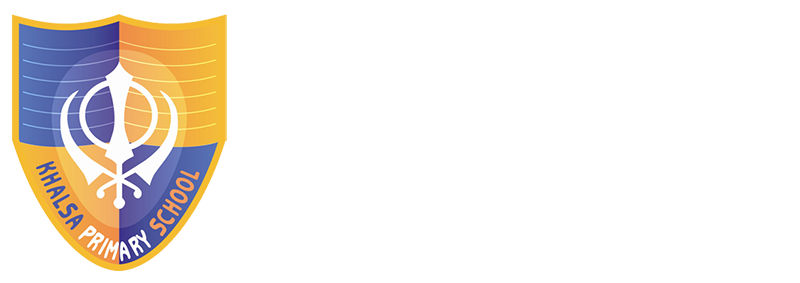PE
OUR ASPIRATION FOR EVERY LEARNER:
The Khalsa Primary PE programme seeks to spark a passionate love for sports and exercise. We want to inspire our children to view physical activity as an integral part of life which they enjoy and revel in.
Children should want to excel in sports as much as they want to excel in any other aspect of their education. Reaching for the top in a chosen sport should be something all children at Khalsa Primary School aspire to achieve and their hard work along with their imagination should lead them to vision winning Olympic medals, playing for their national teams and being highly successful athletes.
Focus on Physical Literacy and Leadership
At Khalsa Primary we follow the Create Development scheme of work which is based around the principles of leadership. The journey starts with teacher planning and role modelling, gradually shifting responsibility to the children through planned opportunities and consistent practice which can lead to an environment where children demonstrate the skills and behaviors with little or no prompting (cultural).
By focusing on 5 key areas (social, personal, cognitive, creative and physical) we can identify the things that are most important, and, breaking them into clear learning journeys, enables small changes that will have a big impact on our learners.
- Social – This refers to an individual’s ability to work well, communicate and learn well with others.
- Personal – This refers to an individual’s attitude and approach to learning and how comfortable, confident and motivated they are.
- Cognitive – This refers to an individual’s ability to order and understand, problem solve, apply skills and make appropriate decisions.
- Creative – This refers to an individual’s ability to explore, express themselves, use their imagination and develop their own ideas and solutions.
- Physical – This refers to the quality of an individual’s fundamental movement skills and their ability to combine and transfer skills effectively in a range of activity and sporting environments.
EYFS
By the end of the EYFS curriculum, children should have the;
Capacity for increased levels of physical activity leading to better health and wellbeing.
Ability to perform gross and fine motor skills with confidence and control.
Knowledge and understanding of the importance of physical activity for their health and wellbeing as well as the importance of healthy eating and plenty of sleep.
Enjoyment of being physically active and appreciating how much fun it is.
Cognitive outcomes include;
Good listening skills − the ability to listen in a range of situations, listening to others and responding appropriately. Good concentration. Ability to express creativity. Ability to use their imagination and think in different ways. Enhanced memory skills. Broader vocabulary.
Key stage 1
Pupils should develop fundamental movement skills, become increasingly competent and confident and access a broad range of opportunities to extend their agility, balance and coordination, individually and with others. They should be able to engage in competitive (both against self and against others) and co-operative physical activities, in a range of increasingly challenging situations. Pupils should be taught to: master basic movements including running, jumping, throwing and catching, as well as developing balance, agility and co-ordination, and begin to apply these in a range of activities. Participate in team games, developing simple tactics for attacking and defending.
Key stage 2
Pupils should continue to apply and develop a broader range of skills, learning how to use them in different ways and to link them to make actions and sequences of movement. They should enjoy communicating, collaborating and competing with each other. They should develop an understanding of how to improve in different physical activities and sports and learn how to evaluate and recognize their own success. Pupils should be taught to: use running, jumping, throwing and catching in isolation and in combination. Play competitive games, modified where appropriate and apply basic principles suitable for attacking and defending. Develop flexibility, strength, technique, control and balance. Take part in outdoor and adventurous activity challenges both individually and within a team. Compare their performances with previous ones and demonstrate improvement to achieve their personal best.
Swimming and water safety
Pupils should be taught to: swim competently, confidently and proficiently over a distance of at least 25 meters, use a range of strokes effectively [for example, front crawl, backstroke and breaststroke] and perform safe self-rescue in different water-based situations.
WHAT WE DO TO ACHIEVE OUR ASPIRATIONS:
Physical Literacy:
Physical Literacy can be described as the motivation, confidence, physical competence, knowledge and understanding that provides children with the movement foundation for lifelong participation in physical activity.
Pupils should be taught to catch, jump, run, swim and throw. Skills like these are the building blocks for children to build a strong foundation to confidently participate in an increasing variety of activities as they grow.
Pupils should also be given opportunities to take the lead in lessons as well as given chances to coach and referee matches and organize tournaments.
Fluency:
The teaching at Khalsa Primary enables pupils to truly grasp a concept, and the challenge comes from investigating it in new, alternative and more complex ways. Pupils at Khalsa Primary become independent, reflective thinkers, whose skills not only liberate them in PE but also support them across the curriculum.
WHAT WE DO TO MEASURE OUR SUCCESS:
Throughout the school pupils are assessed against the National Curriculum objectives.
We adopt a range of assessment approaches that motivate young people to make progress including:
- pupil-led assessment
- peer assessment techniques
- self-assessment and reflection
- use of videos
- whole-class discussion
- teacher assessments.
